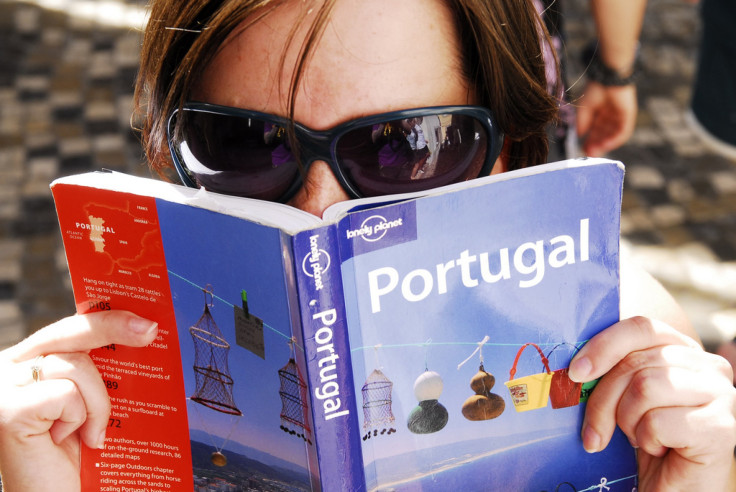Brad Kelley’s NC2 Media Acquires Lonely Planet Brand From BBC

When BBC Worldwide announced Tuesday that it had agreed to sell the budget travel guidebook brand Lonely Planet to NC2 Media, the first question on most people’s minds was: Wait. Who?
As one CNN writer put it, “the buyer is a doozy.”
NC2 Media is controlled by the reclusive U.S. billionaire Brad Kelley, who made his fortune in the 1990s selling discount cigarette brands like Malibu, Bull Durham and USA Gold under the company Commonwealth Brands. Relatively little is known about the Kentucky native, whose estimated net worth is $1.9 billion, because he rarely gives interviews and reportedly does not even use email.
After selling his cigarette company for almost $1 billion in 2001 -- and denouncing cigarettes as something he hoped would be “phased out of society” -- the Forbes 400 member devoted most of his time and resources to media, technology and conservation (Kelley is said to be the fourth largest private landowner in the U.S., though many believe he’s actually the largest).
The young brand NC2 Media, of which Kelley is the largest shareholder, fashions itself as a company that’s “primarily engaged in the creation, acquisition and distribution of quality digital content and the development of the technologies to make that possible” -- a suitably vague description for a company managed by a notoriously elusive individual.
Headquartered in Nashville, Tenn., NC2 Media Executive Director Daniel Houghton will now take on the title of Lonely Planet’s chief operating officer.
“With this acquisition comes a global footprint, not only in the travel guide business, but also in magazine publishing and the digital space,” Houghton said Tuesday. “The challenge and promise before us is to marry the world’s greatest travel information and guidebook company with the limitless potential of 21st century digital technology. If we can do this, and I believe we can, we can build a business that, while remaining true to the things that made Lonely Planet great in the past, promises to make it even greater in the future.”
The whole deal went down for 51.5 million pounds ($77.7 million) -- a staggering 80 million pounds ($120 million) less than the original purchase price, according to BBC Worldwide. The final sale transaction will occur at the end of the current financial year on March 31. The angered chairman of BBC Trust, the broadcaster’s governing body, has promised a review of the sale.
Paul Dempsey, interim CEO at BBC Worldwide, explained, “We acquired Lonely Planet in 2007 when both our strategy and the market conditions were quite different.”
Dempsey said Lonely Planet had grown its global market share despite difficult economic times, but lamented “it no longer fits with our plans to put BBC brands at the heart of our business.”
The commercial arm of the BBC has attempted to rein in its brands and said it was “keen to find a new owner that could bring greater focus and capital" to Lonely Planet. The company claimed Lonely Planet’s financial performance had been hurt in recent years by the continued strength of the Australian dollar (LP’s headquarters is in Melbourne), the rapid consolidation of the publishing industry and the global recession’s toll on leisure travel.
Some 60 percent of Lonely Planet’s costs are incurred in Australia, while 80 percent of its revenues are generated outside, mostly in sterling and U.S. dollars. Yet, as the company’s new chief operating officer, Houghton has reportedly assured workers in Melbourne that there is “no reason to believe at this point in time that [Lonely Planet] would exit Australia.”
In a letter sent to employees, Marcus Arthur, managing director of global brands at BBC Worldwide, also said Lonely Planet would “maintain operations in each of the countries where it currently operates.” He added that NC2 Media would keep the core book publishing and accelerate the brand’s digital strategy.
Lonely Planet is one of the world’s most successful travel publishers and has approximately 120 million books in 11 languages. It’s the number one travel guidebook brand in the U.S., Australia and the UK, BBC Worldwide notes, with more than 120 million unique users visiting its website every year and more than 11 million apps downloaded.
Lonely Planet’s founders, Tony and Maureen Wheeler, started the business from their Melbourne kitchen in 1972 and sold the remainder of their stake in the company to BBC Worldwide in 2011.
The partnership helped Lonely Planet to grow its digital revenues from 9 percent to 27 percent of total income. BBC Worldwide also expanded the brand onto TV and launched a magazine in 15 international markets.
What NC2 Media plans to do with Lonely Planet remains to be seen.
© Copyright IBTimes 2024. All rights reserved.






















